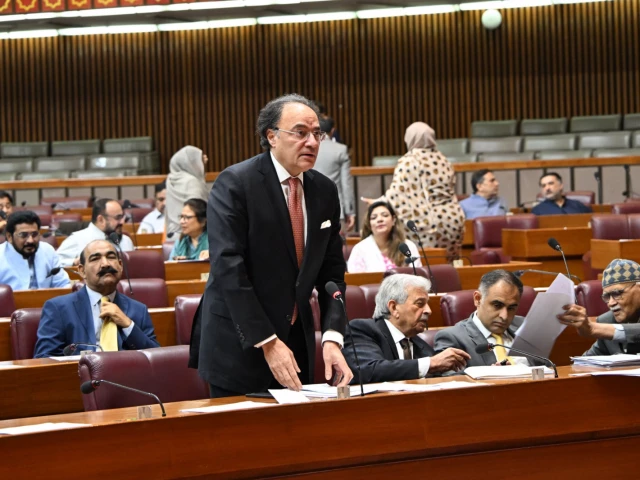Parliament approves sweeping fiscal plan for 2025-26 amid debate over tax reforms and social impact
In a closely watched session on Thursday, Pakistan’s National Assembly approved the much-anticipated federal budget for the 2025-26 fiscal year. The Finance Bill 2025—containing significant changes to tax laws, public spending, and economic oversight—was passed despite resistance from opposition parties, who had called for broader public consultation before final approval.
Finance Minister Mohammad Aurangzeb presented the bill, which totals Rs17.57 trillion. As the clause-by-clause review progressed, opposition members tried to stall its passage, citing the need for public input. However, their proposed amendments were swiftly rejected.
One of the central features of the bill is its focus on curbing tax evasion. New clauses empower authorities to arrest individuals for sales tax fraud, particularly those who issue invoices without delivering goods or tamper with records. Individuals found guilty of destroying tax documents or falsifying returns also face harsh penalties.
Environmental taxation emerged as another focal point. A carbon levy of Rs2.50 per liter was imposed on petroleum products. Moreover, a 10% sales tax on solar panels was introduced—sparking some debate, though the government positioned it as part of a broader sustainability and revenue strategy.
Changes were also made to the Customs Act of 1969, requiring the installation of cargo tracking systems across the supply chain. Companies failing to use electronic billing or attempting to manipulate tracking data now face stiff fines and possible imprisonment.
Salaried individuals earning under Rs600,000 annually remain tax-exempt. However, new income tax brackets were introduced for higher earners as part of an effort to broaden the tax net. Parliament also restructured the process for determining lawmakers’ compensation. The House Committee, rather than the Secretariat, will now handle MPs’ salary decisions, and ministers will receive pay equal to regular Members of Parliament.
The Pakistan Peoples Party (PPP), a coalition ally, expressed its satisfaction with the final document. Chairman Bilawal Bhutto Zardari noted that the government had accepted key PPP recommendations, including a 20% funding boost for BISP and reduced taxes on solar energy products.
With the Finance Bill 2025 now approved, Pakistan enters the new fiscal year with an ambitious economic framework and a renewed emphasis on compliance, environmental responsibility, and targeted welfare spending.



